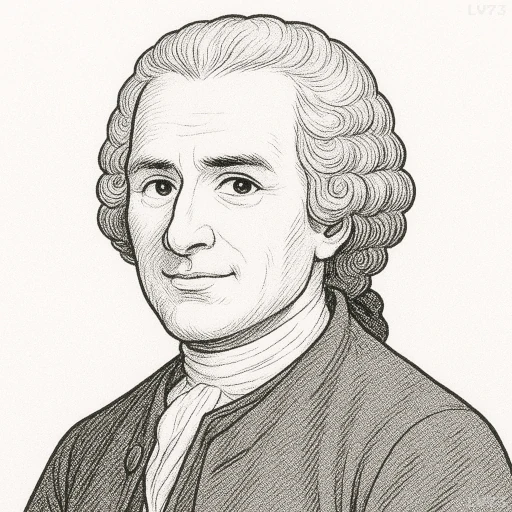“All of my misfortunes come from having thought too well of my fellows.”

- June 28, 1712 – July 2, 1778
- Born in Geneva
- Philosopher, political philosopher, writer, composer
table of contents
Quote
“All of my misfortunes come from having thought too well of my fellows.”
Explanation
In this quote, Jean-Jacques Rousseau reflects on the disillusionment that comes from trusting others too readily. Rousseau, who was deeply concerned with the nature of human relationships and the corrupting influence of society, suggests that his misfortunes arose from his tendency to view others with optimism and idealism, only to be betrayed or disappointed by their actions. This sentiment echoes Rousseau’s broader philosophical views, particularly his belief in the inherent self-interest of individuals, as seen in his works like The Social Contract.
Rousseau lived during the Enlightenment, a period that promoted the idea of human progress and reason. However, he was often critical of the period’s faith in human nature, arguing that society and its institutions led people away from their natural goodness. His personal life, marked by betrayal and conflict with friends and society, likely shaped this particular view. He often felt isolated, misunderstood, and let down by those he believed would support him. This personal suffering, compounded by his philosophical beliefs, led him to question the sincerity and integrity of others.
In today’s world, this quote can still resonate, especially when we consider the disappointments and betrayals people often face in both personal relationships and professional environments. Trusting others, whether in politics, business, or personal matters, can still lead to regret when those around us act out of self-interest rather than genuine concern. It serves as a cautionary reminder to balance idealism with realism when it comes to the actions and intentions of others.
Would you like to share your impressions or related stories about this quote in the comments section?
